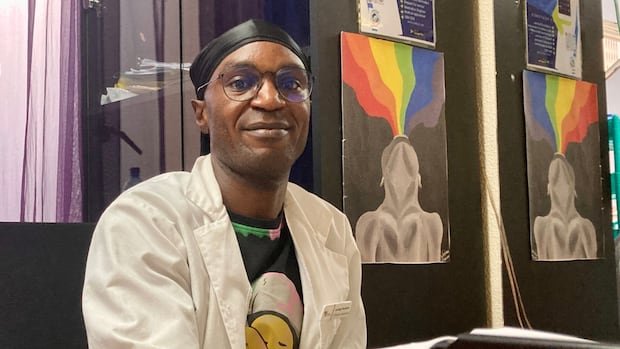Ibrahim Lwingi, a 43-year-old Nairobi native, lost both his parents to HIV-related illnesses when he was 14, leaving him orphaned. Several of his uncles also succumbed to the virus. As a gay man, Lwingi credits life-saving HIV prevention medication, particularly pre-exposure prophylaxis (PrEP), which he has been receiving for free from clinics in Kenya operated by the University of Manitoba. These clinics cater to over 30,000 clients.
However, the future of accessing this medication is uncertain as the Trump administration plans to reduce foreign aid that supports the University of Manitoba’s sex workers outreach program (SWOP) in Nairobi. Staff at the SWOP clinics are concerned about the potential implications for their clients and the broader Kenyan population.
Funding for the SWOP clinics originates from the President’s Emergency Plan for AIDS Relief (PEPFAR), a global health initiative aimed at combating HIV/AIDS initiated by former U.S. President George W. Bush in 2003. Efforts to slash $400 million from PEPFAR funding in 2026 were contested by Republican senators, leading to the restoration of the funds. However, reports indicate that the Trump administration has been withholding more than half of the PEPFAR funds for the upcoming fiscal year.
The University of Manitoba is exploring alternative funding sources to keep the SWOP clinics operational. Emergency funds from the university are being utilized temporarily to maintain three clinics with minimal staff for three months, and the original clinic is slated to continue for another year with limited personnel.
Without additional funding, patients like Lwingi may lose access to PrEP by the year’s end, potentially jeopardizing their health. The SWOP clinics not only provide medication but also offer a safe space for marginalized communities to access support and information about HIV without fear of judgment or discrimination.
Efforts to secure grants and funding from various sources, including Global Affairs Canada, have been made by the SWOP team. However, the competitive landscape due to U.S. funding cuts poses challenges in obtaining financial support. The potential closure of the SWOP clinics could force clients to seek medication from public healthcare facilities, where stigma and discrimination have been reported.
In light of the current situation, it is crucial to address the funding gaps to sustain vital HIV/AIDS prevention and treatment programs in Kenya. Joshua Kimani, head of clinical services for SWOP, emphasizes the importance of maintaining these services to protect at-risk populations and prevent the spread of infections within the community. Despite the uncertainties, Kimani remains hopeful and determined to secure necessary funding to continue their lifesaving work, highlighting the critical role these clinics play in safeguarding public health.


